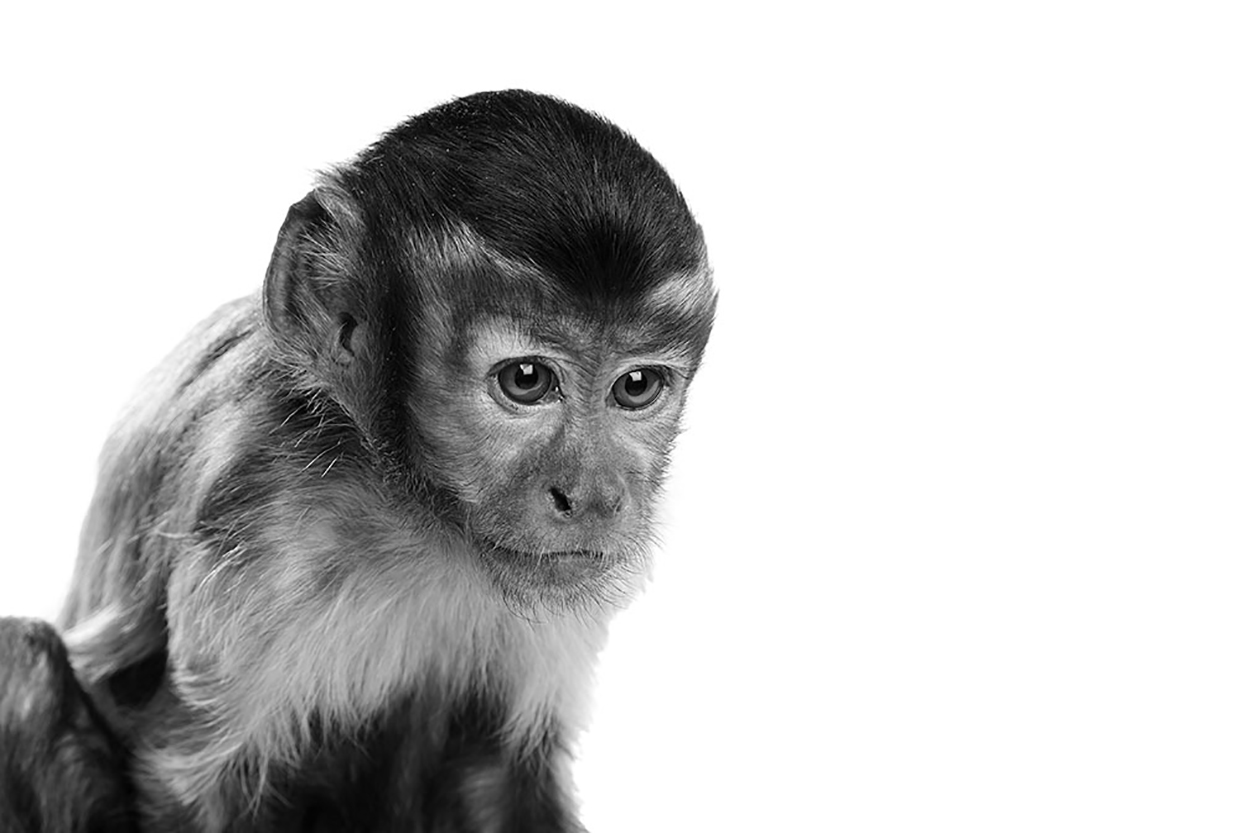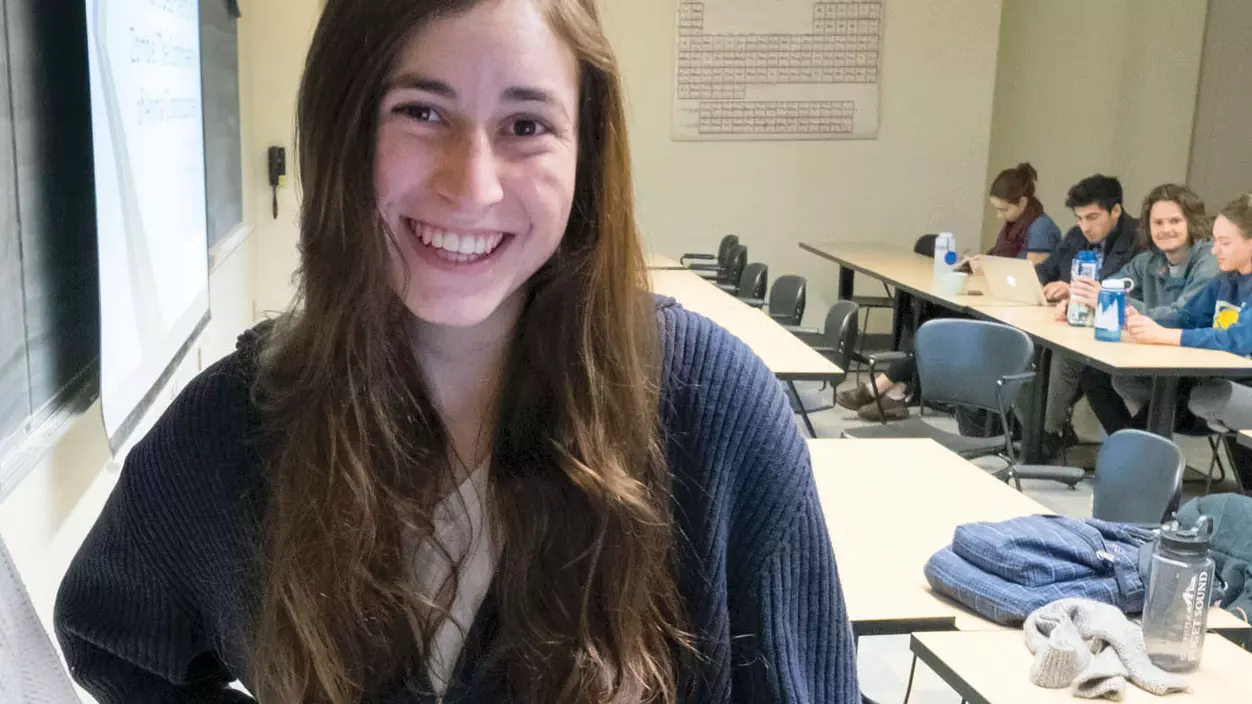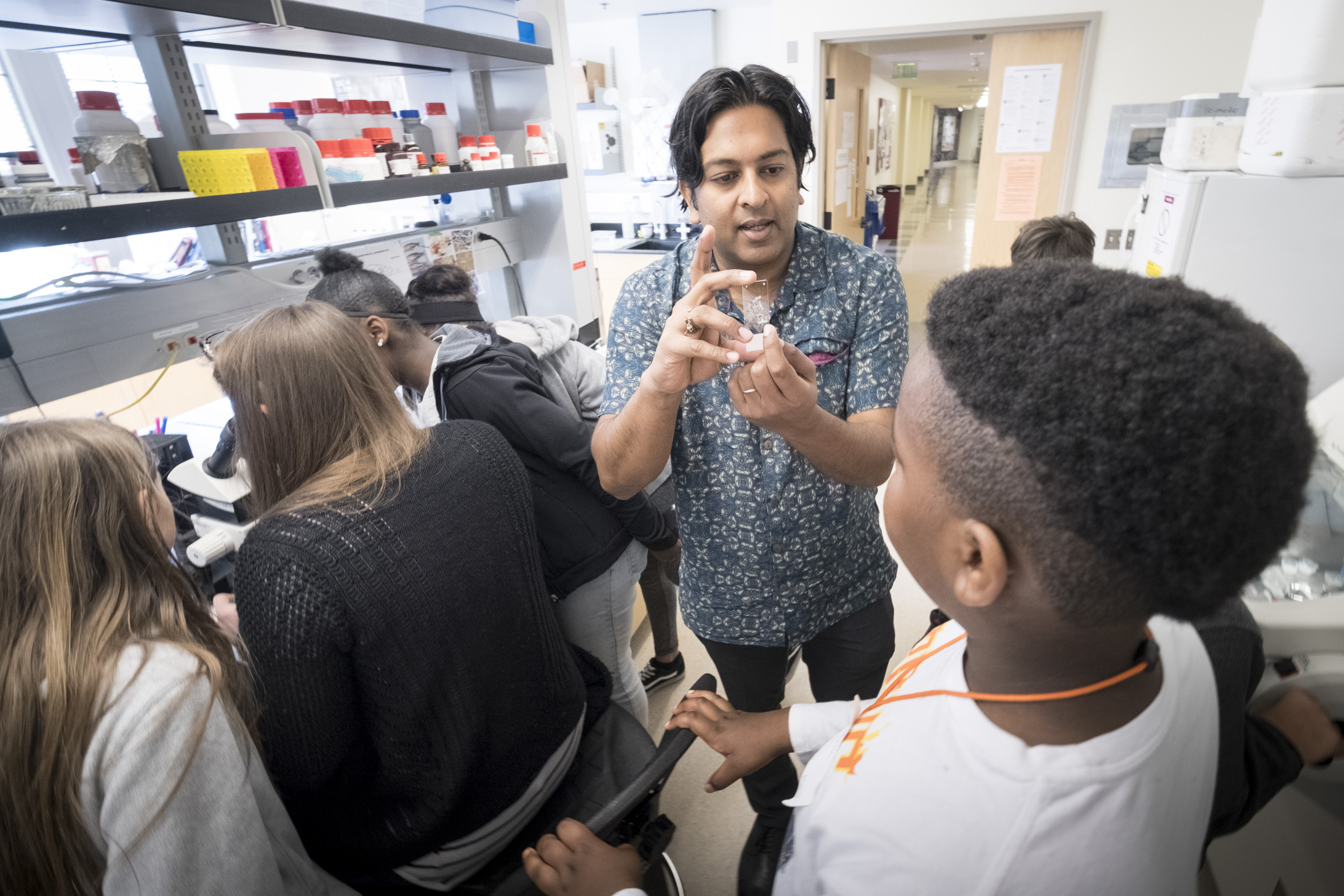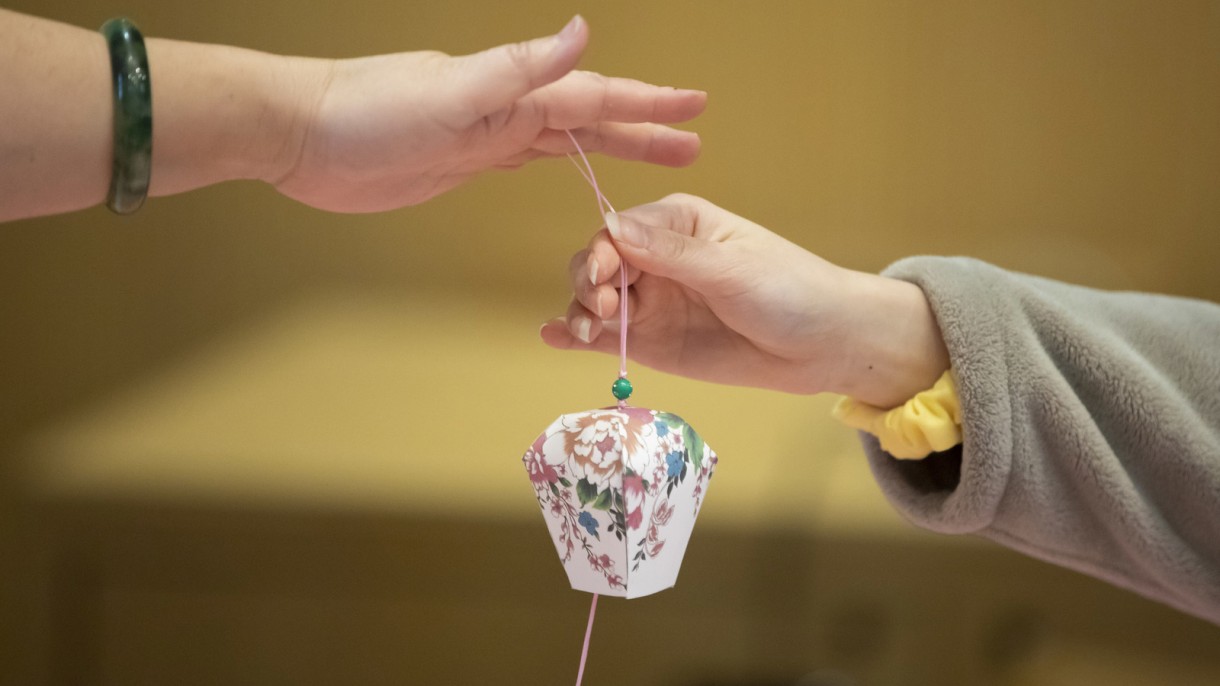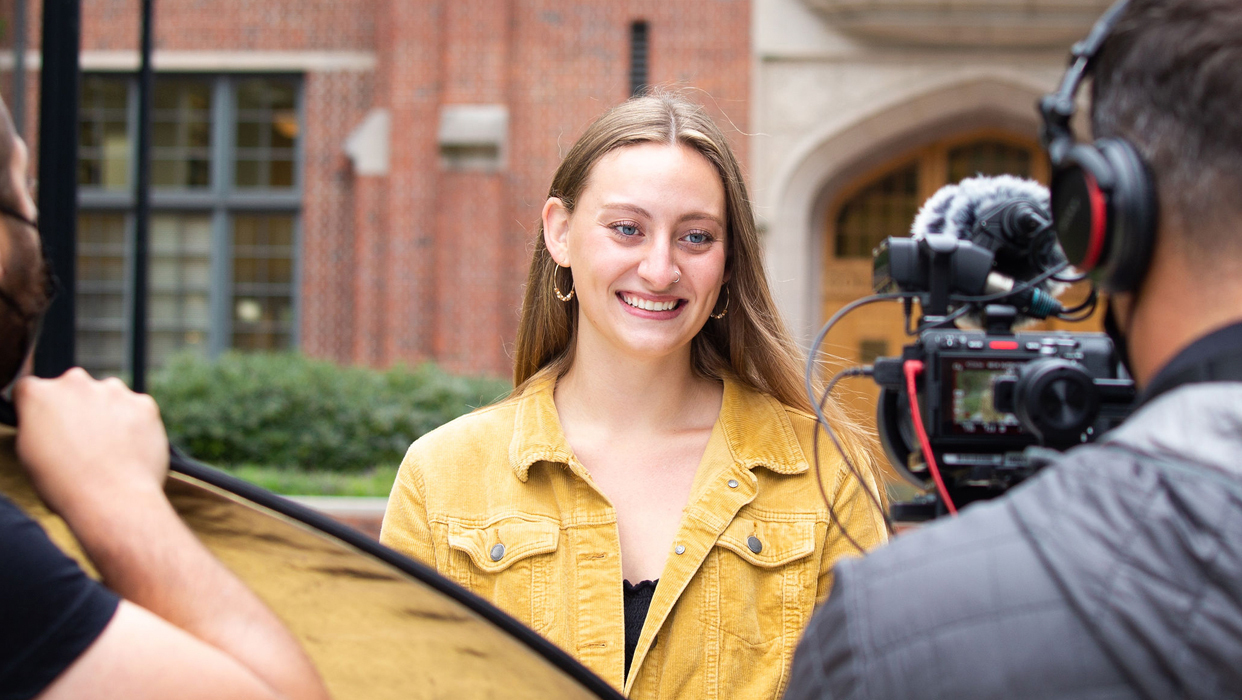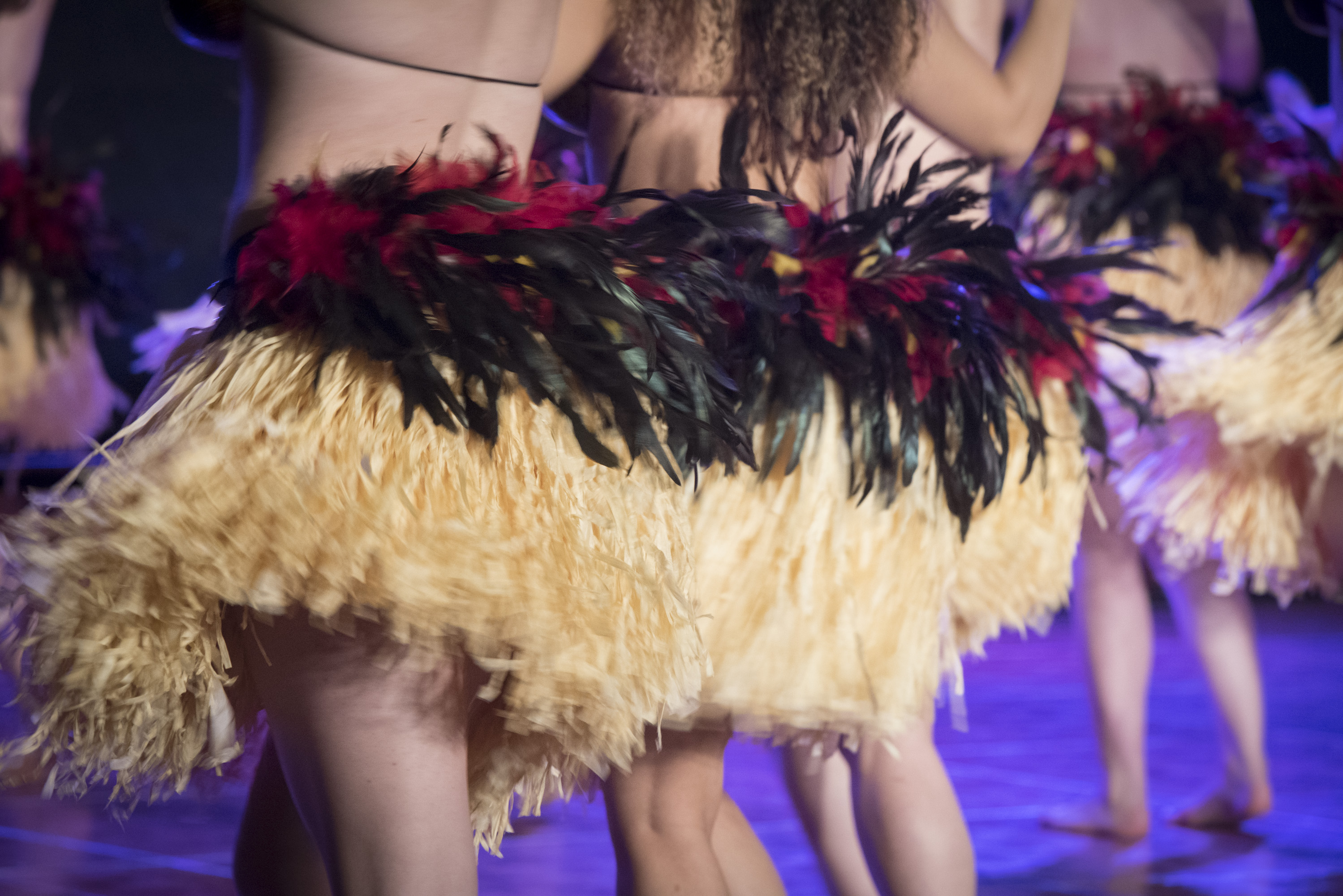The Bioethics Club explores the ethics of animal consciousness
Late one evening in a Thompson Hall classroom, roughly a dozen students gathered to hear Puget Sound psychology professor Erin Colbert-White give a talk called “The Ethics of Animal Consciousness.”
The informal seminar was one in a series sponsored by the Bioethics Club, which, under President Emma Goldblatt ’18, is focusing on exploring the diversity of the bioethics field. This academic year, professors and local experts have given talks on the ethics of climate change, marijuana and cancer care, clinical practice, and Tibetan medicine.
Erin’s seminar explored the questions of what consciousness is and how the “bombshell controversy” around whether nonhuman animals have conciousness could change the way humans treat animals, particularly in terms of animal testing and pet ownership.
